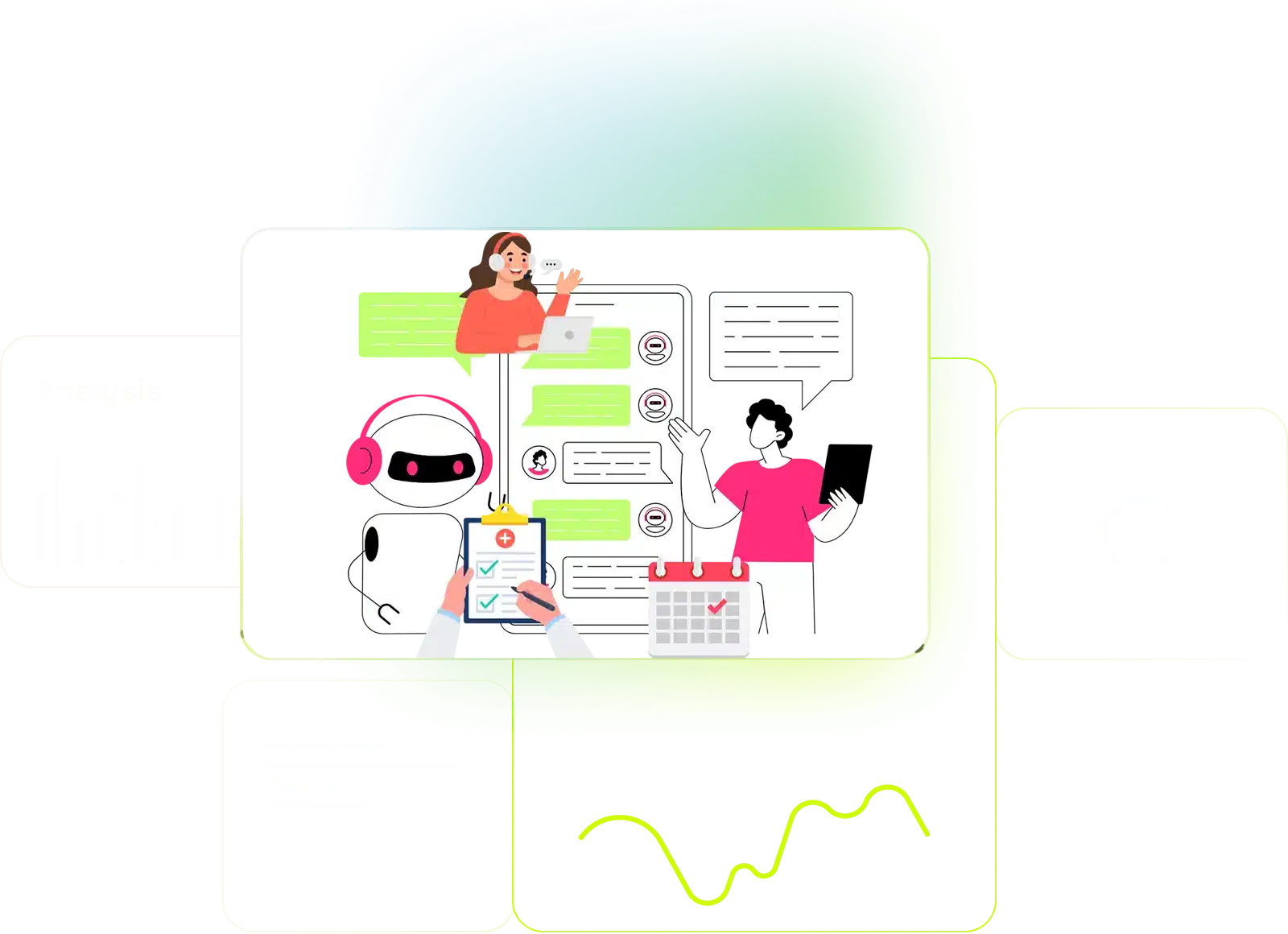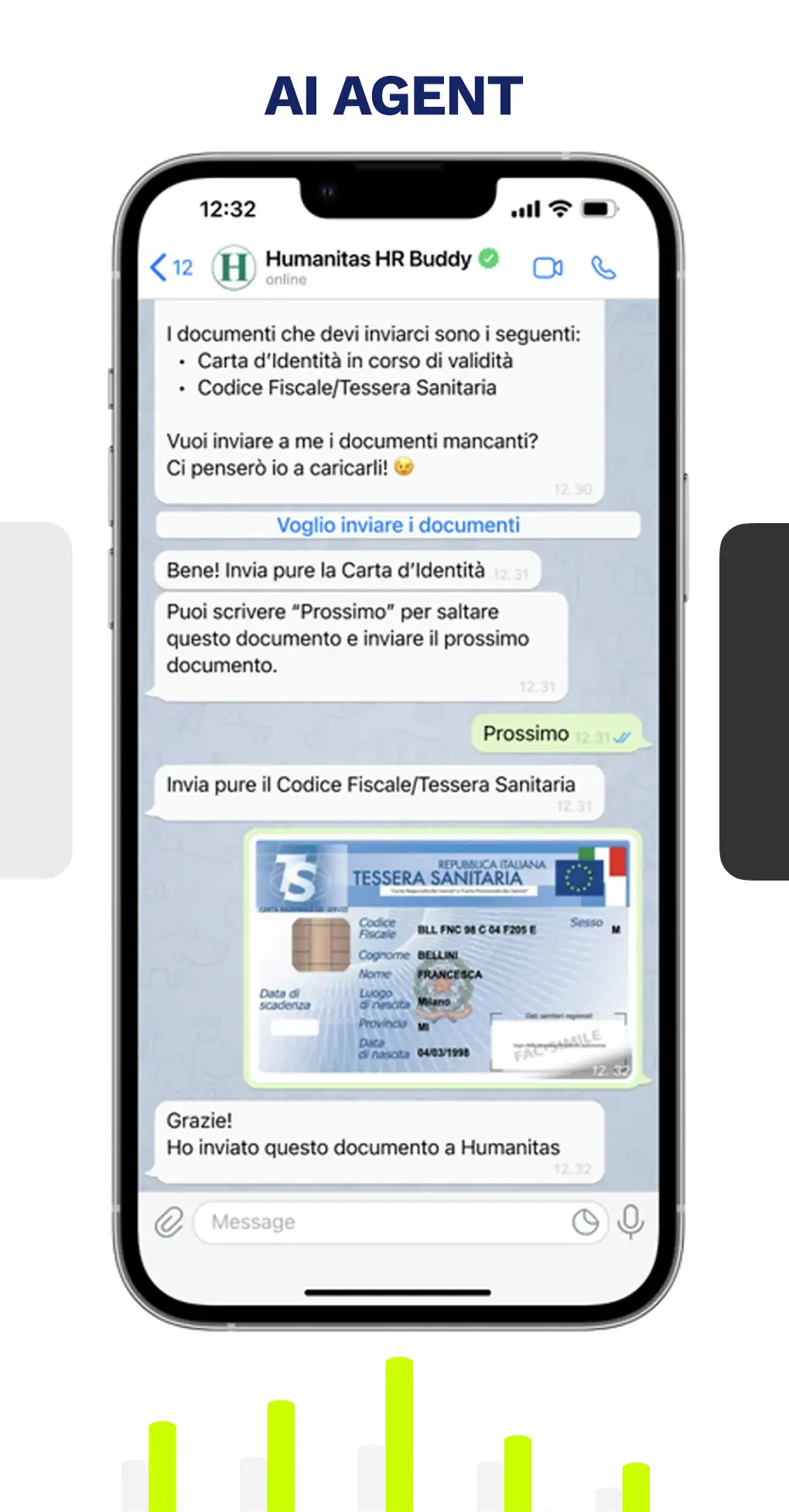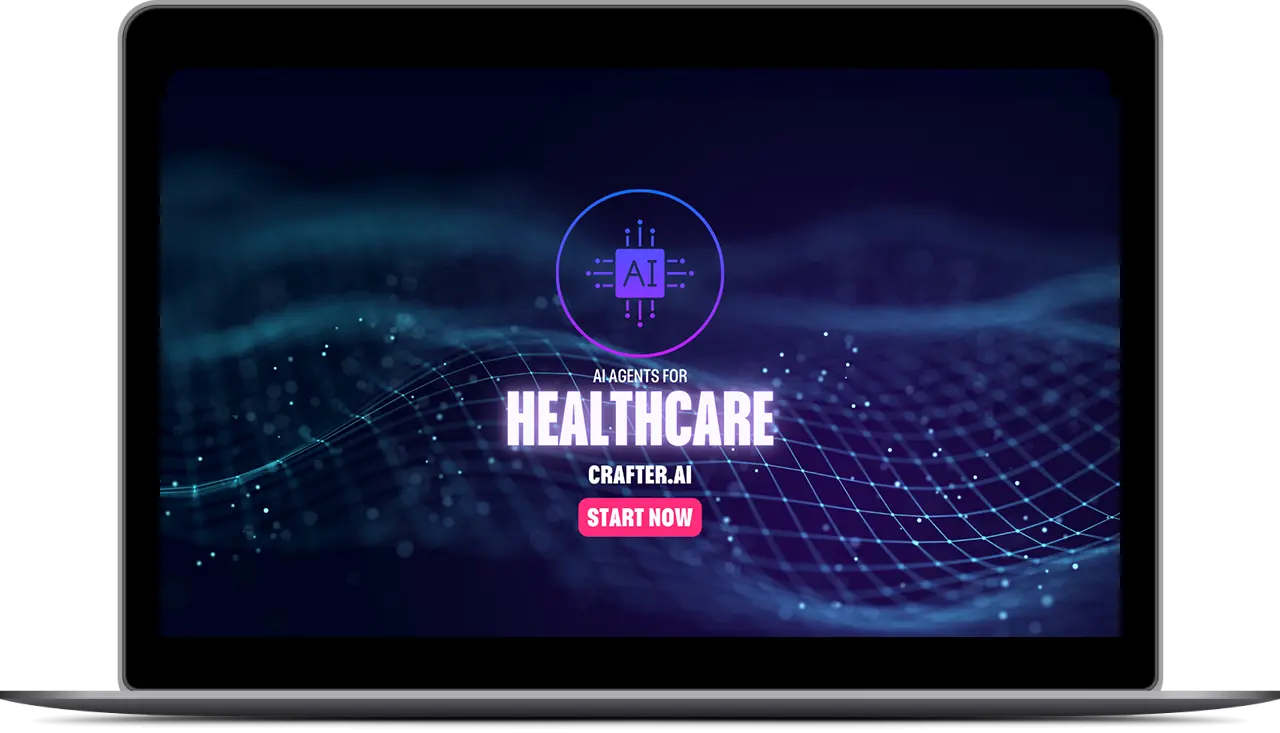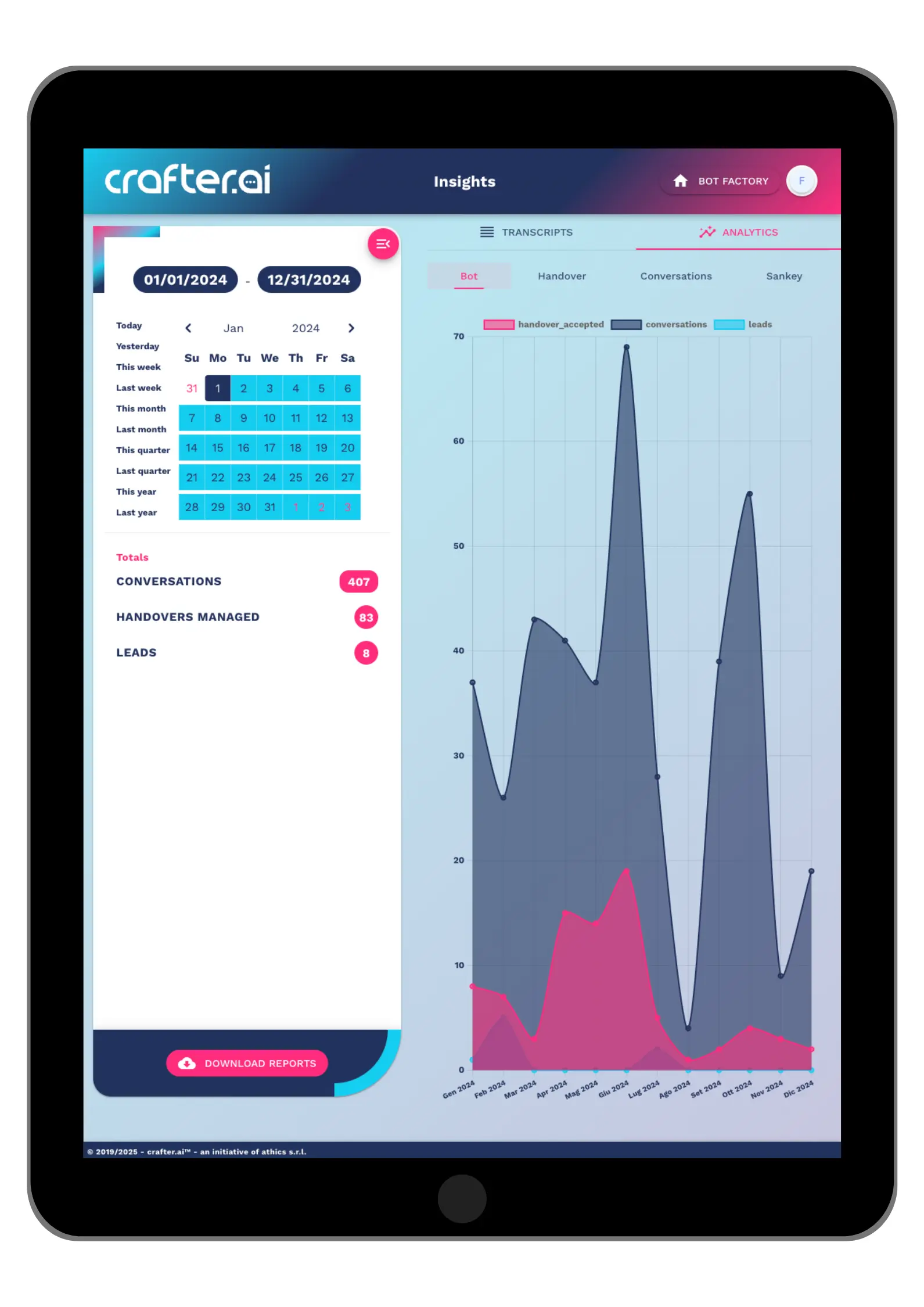Healthcare AI Agents
Healthcare AI Agents can make a difference in terms of timeliness and accuracy of information.
Artificial intelligence in the healthcare sector improves access to services, optimizes processes and supports patients quickly and effectively.
Virtual assistants, in particular, can improve the productivity of administrative tasks, such as appointment management, admission triage procedures, access to information by patients and medical staff.
Healthcare becomes more efficient, personalized and always available, to the benefit of the productivity of the healthcare organizational structure.

AUTOMATION
Increased productivity and greater efficiency.
Cost reduction
Better resource allocation and cost reduction.
Patient Experience
An always-on channel with immediate access to information to optimize the patient experience.

Healthcare AI Agents
– HR Use Case –
Humanitas Research Hospital is a highly specialized University and Research Hospital. The process of introducing new resources to the Humanitas Research Center involves many corporate functions and is characterized by a high turnover of healthcare staff and the presence of international personnel.
Humanitas management has designed Healthcare AI Agents to optimize the process and reduce the administrative effort for the HR team.
The HR Onboarding chatbot, integrated on the Whatsapp channel, guides new hires through the process of entering the company, answering frequently asked questions from the HR team, facilitating the collection of data, forms and pre-filled documents, and providing material such as company policies and operating procedures.
conversational ai healthcare
Optimized Patient Experience
Technology offers healthcare organizations the ability to personalize patient interactions and treatment, relieving pressure on doctors for routine care and allowing them to focus on procedures that require their expertise and training. AI Agent Building platforms allow you to create and put Healthcare AI Agents into production, without the need to develop code.
For example, it is possible to create Healthcare AI Agents to support the admission triage procedure, capable of identifying the customer, assigning an entry progressive and directing him to the area of the facility of interest.
The ability to integrate via API with third-party systems, LLM for generating knowledge bases and responses, a tool for customizing conversation flows and the ability to transfer the conversation to an operator (handover) allows you to quickly put into production an advanced conversational AI solution at the service of your hospital facility.


Personalization & Analytics
From the dashboard, you can download detailed reports (conversations, handovers, messages, summaries, misses, sankeys, feedback), to import into your business intelligence systems.
The integrability of predictive analysis tools also allows you to customize communication based on the patient profile, with messages aimed at improving adherence to therapies.
CONVERSATIONAL AI HEALTHCARE
Application Overview
Medical Concierge Chatbot
They provide information on hospital services and facilities, patient visiting hours, and access methods to the facility.
Triage Healthcare AI Agents
They verify patient personal data, direct patients to rooms and departments, and facilitate the payment process.
Back Office Automation
They facilitate data recovery, updating of patient records and automated management of doctors’ agendas.
Virtual Nursing Assistant
They support patients in detecting symptoms, performing assessments and notifying the doctor when it is necessary to intervene or request a visit.
Clinical reports access
They support the process of obtaining or recovering credentials, after authentication, they return the report file in chat or via email.
Appointment scheduling
They make it easier to make appointments, send notifications and reminders, and help reduce the percentage of “no shows”.
HEALTHCARE AI AGENTS MARKET
AI in Healthcare
Artificial intelligence is a major transformative technology for healthcare. The market is expected to grow at a CAGR of 43% between 2024 and 2032, reaching a total value of $491 billion. Generative AI alone will grow faster in healthcare than any other industry. With an estimated CAGR of 85%, the market value is expected to reach $22 billion by 2027.
AI has the potential to alleviate documentation burdens, manage pre-op workflows, and streamline insurance claims. The biggest and most immediate impact of Healthcare AI agents may be their role in streamlining administrative processes and reducing expenses.
%
Patients Believe AI Improves Healthcare
%
Healthcare Companies Experimenting With Gen AI
%
Hospitals That Will Adopt AI by 2025
CONVERSATIONAL AI HEALTHCARE
OUR CUSTOMERS
Thanks to Crafter.ai we were able to significantly reduce the administrative effort related to the HR Onboarding process.
Insights
“AI in healthcare helps reduce costs, develop new products and improve patient interaction”. – Deloitte
healthcare chatbots revolution
Healthcare chatbots improve efficiency, personalized care, and access to services. The integration of advanced AI, such as healthcare chatbots, is transforming the way patients, doctors, and healthcare professionals interact with the healthcare system, ensuring faster diagnoses, more precise treatments, and more efficient management of resources.
Chatbots to support health
In healthcare, several types of artificial intelligence, such as machine learning and predictive analytics, are already in use, while an increasing number of facilities are looking at chatbots.
How to use predictive AI
Predictive AI enables doctors to predict the onset of diseases based on clinical data. By integrating virtual assistants, patients can receive personalized health advice and therapy reminders, improving treatment adherence.
HR Onboarding in Humanitas Research Hospital
Humanitas Research Hospital’s Automated HR Onboarding chatbot guides the onboarding process for new hires, contributing to the efficiency of the HR process.
